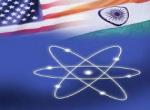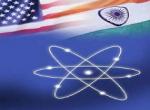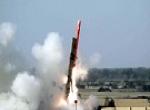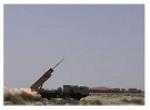The Civil Nuclear Liability Bill passed by Parliament needs a dispassionate appraisal as controversy has surrounded it. Its passage has not been greeted with any particular enthusiasm, as the government did not get exactly what it wanted and the opposition had no reason left to object because its amendments were acccepted. Criticism of the bill, on the other hand, has been loud - from the business lobbies and some analysts who bemoan it for ending India’s prospects of becoming a major producer of nuclear power.
Foreign suppliers, and even local, they say, would spurn the Indian market because the bill provides the operator the right, in case of a nuclear accident, to legally proceed against the supplier for providing equipment with latent or patent defects or sub-standard services. They are right in saying that this provision is against the norms laid down in existing international liability conventions, These place the entire liability for damage caused by accidents on nuclear power plant operators, with no right of recourse against suppliers. This might explain the ham-handed way in which Article 17(b) of the Bill providing for this right was either sought to be eliminated or qualified in a manner that would negate its purpose, in a bid to make the legislation compatible with international practice.
The pressure for this can be sourced to the US nuclear suppliers lobby which wants acceptable legal conditions for entering the highly promising Indian market. Their effort produced the Letter of Intent of September 2008 to the US government in which India committed itself to earmark two sites for US sourced nuclear power plants producing 10,000 MWs of electricity, as well as adhere to the 1997 Convention on Supplementary Convention(CSC) that protects suppliers from any liability and bars claimants of nuclear damages from moving US courts.
Although the Department of Atomic Energy(DAE) initiated internal work on a civil nuclear liability legislation after the agreement with Russia for setting up the two nuclear power reactors at Kudankulam, with potential trans-boundary impact of a nuclear mishap on Sri Lanka in mind, this work was halted in 2003. In the perspective of an expanded Indian nuclear power programme with international cooperation, the case for enacting a liability legislation is strong. The issue is whether such legislation has to fully conform to existing “norms” developed by the powerful US supplier lobby at a time when it was a suppliers market and the US companies were the most powerful players in the game, backed by enormous US political clout, or India can independently examine what is right and equitable in apportioning liability between operators and suppliers and draft its own legislation accordingly.
The debate in India, with Bhopal and the $ 20 billion penalty imposed on BP for the oil spill in the Gulf of Mexico in mind, could not have but been acrimonious in terms of compensation amounts and the legal immunity for US suppliers. By demanding a CSC compliant Indian legislation, the US companies have been seen as the driving force behind attempts to eviscerate section 17(b), with the hurry to enact the law connected to President Obama’s November visit to India. This perception has got reinforced by the stark interventions of the US-India Business Council, FICCI and CII against the right to recourse proviso in the Bill, as well as the grossly ill-advised statement by a senior NPCIL representative warning against it.
Both the Russians and the French would no doubt prefer exempting the suppliers from all liability, and would have questions about the enacted legislation. But they have been discreet in their tactics, leaving it to the Americans to tweak the Indian legislative process, and, in case of success, share the positive outcome, and in case of failure, let the US bear the odium of interference. The Russians would want to seek refuge from the new legislation by citing the existing inter-governmental agreement on setting up additional nuclear reactors at Kudankulam that places all liability on the operator, viz. the Nuclear Power Corporation of India(NPCIL). While Russia could challenge the retro-active application of the new legislation to already finalized contracts, it would be on thin ground to seek exemption for additional power plants for which negotiations have not even begun. It will then have to choose between clinging to a sterile legal position and cornering more business opportunities in India from a well disposed government. The French too would need to act pragmatically, and as their nuclear industry is state-owned they may have more flexibility in adjusting to the Indian legislation. Problems can be expected in getting our international partners to accept the game changing Indian legislation, but then the so-called norms governing nuclear trade merely reflect market conditions which are evolutionary in character. It is not chest-thumping to say that foreign suppliers will find it very difficult to ignore India’s large nuclear market, and ways to adapt to the Indian legislation will eventually be found.
To say that suppliers will be exposing themselves to liability for 80 years under the Indian law is sophistry. The law nowhere mentions any such figure. It is practically inconceivable that a patent or latent defect will lie dormant for 59 years, but when the plant is to be mothballed in the 60th year of its life, an accident will occur and expose the supplier to another 20 years of liability. In these long decades the plant will have undergone maintenance, overhaul, replacement of parts, stringent safety audits etc. Moreover, the supplier’s liability is not automatic; it will have to be established in a court of law. The cost of insurance for suppliers may not increase as much as touted, as the right to recourse is limited to the total liability of the operator capped at 300 million SDRs, which is a tiny percentage of the total cost of a nuclear power plant. And why should the US companies want to escape the jurisdiction of their own courts if the victims can get better justice there? Incidentally, the CSC that the US wants India to sign has not entered into force as it has been ratified only by four countries- US, Morocco, Romania and Argentina.
The government should be gratified that those who vehemently opposed the Indo-US nuclear deal in Parliament have joined hands with it to pass the civil nuclear liability legislation. The consensus that government could not achieve on conditions for opening up India’s nuclear sector to foreign participation, has been achieved in a follow-up legislation. This, in effect, amounts to an endorsement of the government’s original initiative and buries the acrimony of the past. Contrary to some views expressed, government’s willingness to compromise does not expose its weakness; it shows the positive things achievable in national interest through a collaborative parliamentary process.
When India is asked to accept more international responsibility as a rising power, the question always is whether it is expected to subscribe to existing international arrangements and regimes that need modernization and reform, or is supposed to also contribute constructively to the re-writing of rules. In the case of its civil nuclear liabilty legislation India is doing the latter.
The writer is a former former Foreign Secretary
--------------------------------------------
Published in Mail Today, Published Date : September 7, 2010









Post new comment